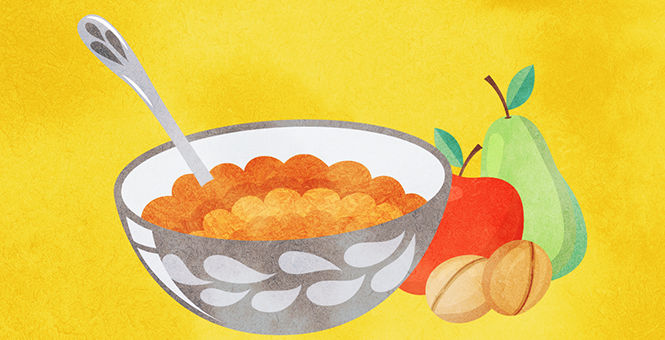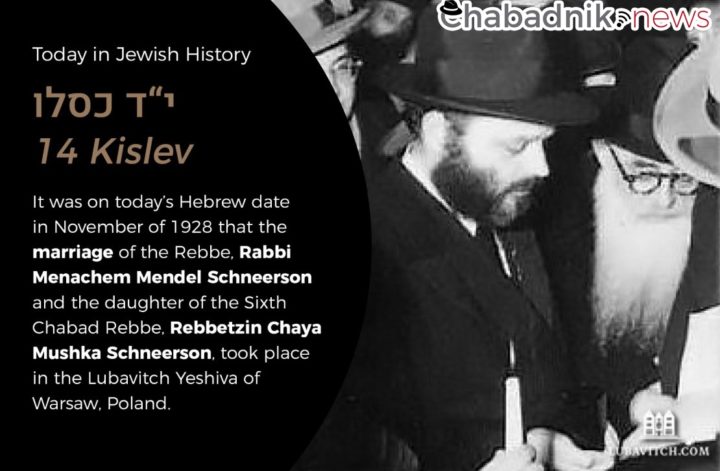Surrounded by my children as we go through the Passover seder, I taste the sweet, delicious charoset. On this night of questions, I wonder about its sweetness. The charoset with its paste-like texture is a reminder of the clay and bricks that the Jewish slaves were forced to make in Egypt. Why is the charoset, the symbol of bricks and our hard forced labor, so sweet?
In all cultures acrossWhy isn’t the charoset bitter? all lands, the charoset recipe is made of fruits. The charoset that I grew up with is made from apples and sweet wine. So, why isn’t the charoset made to taste bitter? In fact, we dip the bitter herbs into the charoset to “sweeten” its bitterness.
There are different reasons, but here’s what I’d like to suggest.
It is written, “In the merit of the righteous women, the Jewish people were redeemed from Egypt.”1 What was their merit? They continued having children, even though they were uncertain of their future. Their husbands, as a result of their subjugation and servitude, lost hope of being redeemed. They separated from their wives for they saw no point in bringing children into a life of such hardship, where they faced poverty and slavery, or worse, actual death. But the women, who shared their servitude, encouraged their husbands.
The Talmud describes how when these women would become pregnant, they would come back to their homes, and when the time for them to give birth would arrive, they would go and give birth in the field under the apple tree, as it is stated: “Under the apple tree I awakened you; there your mother was in travail with you; there was she in travail and brought you forth.” 2 Those same apples that we mix into our charoset.
Why did they give birth under the apple tree? Because the apple tree first produces its fruit and only then produces protective leaves. The women thus declared that they would do likewise—first give birth to their “fruit,” and then G‑d would come protect and redeem their offspring (Eliyahu Ki Tov).
I think about those bricks—the bricks they made in Egypt to build the city of Ramses that would collapse on them and fall. Those bricks were nothing but bitter. And then I think about the “bricks” that those women used to build our nation—the bricks of hard work and labor that they invested to build a home, a family, a community, a nation. A nation that despite oppression, discrimination and persecution lives on.
Every single Jew is a building brick in the process. Every child that comes into the world is a miracle and an entire world. At any age and at any stage, we don’t know what will happen or how.
This past week, IA young woman giving birth to her first child is always beautiful and exciting accompanied one of my friend’s daughters on her birth (as a doula), and it was surreal. Yes, everything we hear in the news today is all about illness and death, but women are still giving birth, and the sun continues to rise and set. A young woman giving birth to her first child is always beautiful and exciting. Of course, she was full of the normal worry and fears that accompany every woman as she gives birth. But this young woman giving birth to her first child was also so full of energy and hope, despite the crazy times that engulf her.
What a contrast to later in the week when I accompanied a woman in her mid-40s giving birth to probably her last child. I didn’t feel that energy. I didn’t feel that hope. I felt more her exhaustion, if anything, and so much worry.
How would they integrate this little addition into their family? Would they have the energy and resources to take care of him? There was the normal worry and fears of every mother, who on this day is not full of fear of what will be tomorrow, plus additional ones based upon the stories and statistics that have bombarded her since the moment she found out about the child’s conception. Would this child be healthy? This woman had more of life’s experiences to feed into her fears. There were also thoughts of, “What will people think? What about my free time, my independence? How can I get up in the middle of the night at this age?”
I left her birth, which was in a technical way easier than that of my friend’s child’s first, emotionally drained and exhausted.
I have quite a few clients having children in their 40s. For some, it is their fifth or their eight or even 10th baby! For others, it’s their first. Regardless of age, we all worry about our children’s future.
Many women go through the same questions, no matter at what stage of their lives: Do I want more children? Do I not? Do I have the energy for more? The resources? It’s so much hard work having children—emotionally, physically, mentally.
I sit at the table surrounded by children and realize that I, too, have similar concerns. How will we provide for our children? Who will they grow up to be? Will they grow up to be good people who embrace life and overcome their challenges? Are we raising them correctly? Giving them all the tools that they need to succeed? Will they follow in the ways of our ancestors?
I realize that I have noI have no idea what the future will bring idea what the future will bring, and I have no control on how each child will turn out. But I know that I have to put in all the effort that I can and leave the outcomes up to G‑d, who gives us our strength, and who loves and cares for us.
As I eat the sweet charoset, I pray to be able to tap into the hope and faith of my ancestors in Egypt—those brave women who found the strength to live and go on and build the Jewish nation, despite the surrounding hardship and despite their fears.
And I pray that there should be a real sweetness in all the hard work and labor that goes into building our homes and our futures.



